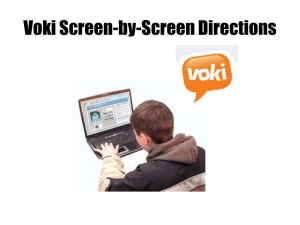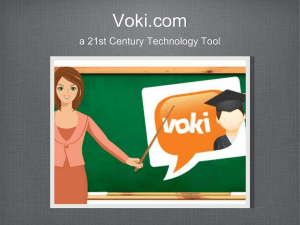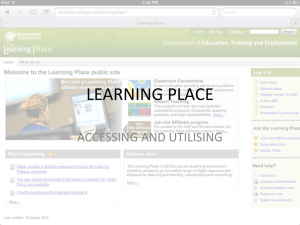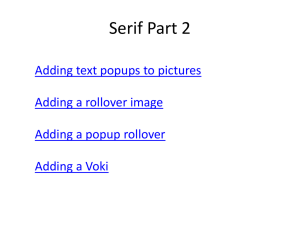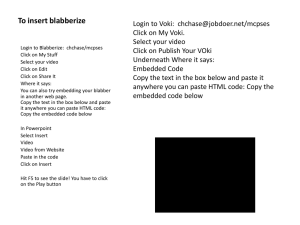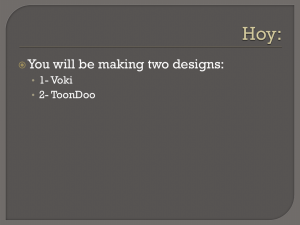PL Learning – Classroom Applications and Web 2.0 Tools
advertisement
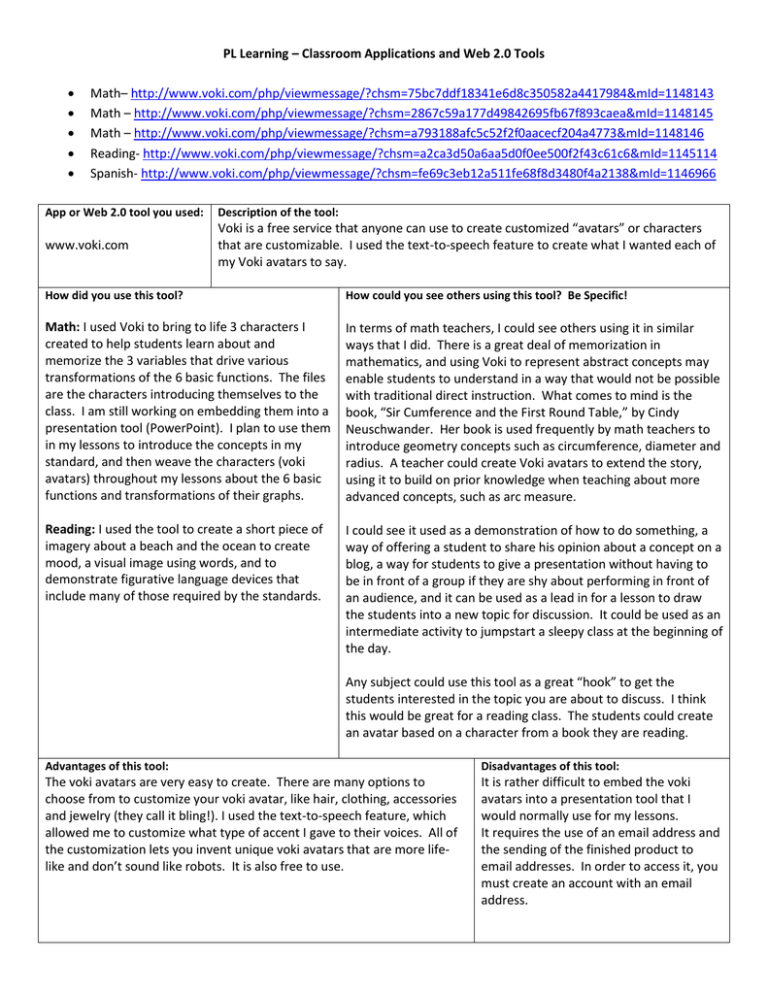
PL Learning – Classroom Applications and Web 2.0 Tools Math– http://www.voki.com/php/viewmessage/?chsm=75bc7ddf18341e6d8c350582a4417984&mId=1148143 Math – http://www.voki.com/php/viewmessage/?chsm=2867c59a177d49842695fb67f893caea&mId=1148145 Math – http://www.voki.com/php/viewmessage/?chsm=a793188afc5c52f2f0aacecf204a4773&mId=1148146 Reading- http://www.voki.com/php/viewmessage/?chsm=a2ca3d50a6aa5d0f0ee500f2f43c61c6&mId=1145114 Spanish- http://www.voki.com/php/viewmessage/?chsm=fe69c3eb12a511fe68f8d3480f4a2138&mId=1146966 App or Web 2.0 tool you used: Description of the tool: www.voki.com Voki is a free service that anyone can use to create customized “avatars” or characters that are customizable. I used the text-to-speech feature to create what I wanted each of my Voki avatars to say. How did you use this tool? How could you see others using this tool? Be Specific! Math: I used Voki to bring to life 3 characters I created to help students learn about and memorize the 3 variables that drive various transformations of the 6 basic functions. The files are the characters introducing themselves to the class. I am still working on embedding them into a presentation tool (PowerPoint). I plan to use them in my lessons to introduce the concepts in my standard, and then weave the characters (voki avatars) throughout my lessons about the 6 basic functions and transformations of their graphs. In terms of math teachers, I could see others using it in similar ways that I did. There is a great deal of memorization in mathematics, and using Voki to represent abstract concepts may enable students to understand in a way that would not be possible with traditional direct instruction. What comes to mind is the book, “Sir Cumference and the First Round Table,” by Cindy Neuschwander. Her book is used frequently by math teachers to introduce geometry concepts such as circumference, diameter and radius. A teacher could create Voki avatars to extend the story, using it to build on prior knowledge when teaching about more advanced concepts, such as arc measure. Reading: I used the tool to create a short piece of imagery about a beach and the ocean to create mood, a visual image using words, and to demonstrate figurative language devices that include many of those required by the standards. I could see it used as a demonstration of how to do something, a way of offering a student to share his opinion about a concept on a blog, a way for students to give a presentation without having to be in front of a group if they are shy about performing in front of an audience, and it can be used as a lead in for a lesson to draw the students into a new topic for discussion. It could be used as an intermediate activity to jumpstart a sleepy class at the beginning of the day. Any subject could use this tool as a great “hook” to get the students interested in the topic you are about to discuss. I think this would be great for a reading class. The students could create an avatar based on a character from a book they are reading. Advantages of this tool: Disadvantages of this tool: The voki avatars are very easy to create. There are many options to choose from to customize your voki avatar, like hair, clothing, accessories and jewelry (they call it bling!). I used the text-to-speech feature, which allowed me to customize what type of accent I gave to their voices. All of the customization lets you invent unique voki avatars that are more lifelike and don’t sound like robots. It is also free to use. It is rather difficult to embed the voki avatars into a presentation tool that I would normally use for my lessons. It requires the use of an email address and the sending of the finished product to email addresses. In order to access it, you must create an account with an email address.
